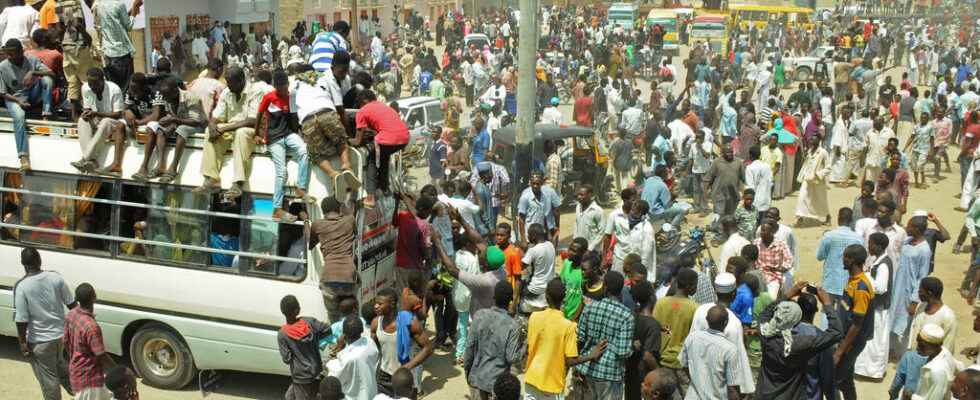In Sudan, faced with the unprecedented wave of violence that bloodied the Blue Nile State last week, the organizers of the political opposition against the military in power are calling for ” the unit “, with the launch Tuesday, July 19 of a fundraiser for the victims. While they have announced that they will send a delegation there, they accuse the military in Khartoum of fueling the conflict for their benefit. According to several observers, it would be misleading to describe these killings as only intercommunity “.
The unprecedented violence in the Blue Nile are above all policies “, they are not due ” to a centuries-old hatred between tribes “, explains the Sudanese journalist Mat Nashed, but are rather ” the result of a logic that has neglected, plundered and militarized the outskirts of the country since independence “.
The researcher Kholood Kair approves and clarifies: for her, the first person responsible for the deterioration of the situation is indeed “the military-Islamist regime from Khartoum. Faithful heir to Omar Al-Bashir, he relies, according to her, on the tribalization of distant states to further their own interests.
Its financial interests, first, by ensuring, through local alliances, control over the land and its resources. Then his political interestsby arming certain factions against others, on the basis of a divisive racial rhetoric “.
Thus in the Blue Nile, where, as in Darfur, access to land and water is increasingly conflicting, the Hausa believe they are being treated unfairly. They therefore intend to organize themselves into emirate and be represented in Blue Nile institutions, which other communities refuse. This is how a local incident quickly degenerated on July 10 into a general conflagration.
The latest report from the Blue Nile authorities reports 105 dead and 291 injured in ten days. Jamal Nasser, the Minister of Health assured that calm had returned with the deployment of security forces in the conflict zone.
The Hausa community has called for an investigation into the origin of the violence. According to Umar Hamza Abdolaye, a citizen who took part in demonstrations organized by Hausa social movements, he “ there is a need to regulate the distribution of land to bring back the peace “, he estimated to Mahamane Salissou Hamissou of the Hausa service of RFI:
According to Umar Hamza Abdolaye, a Hausa protester, “land distribution must be regulated to bring peace” to the Blue Nile
